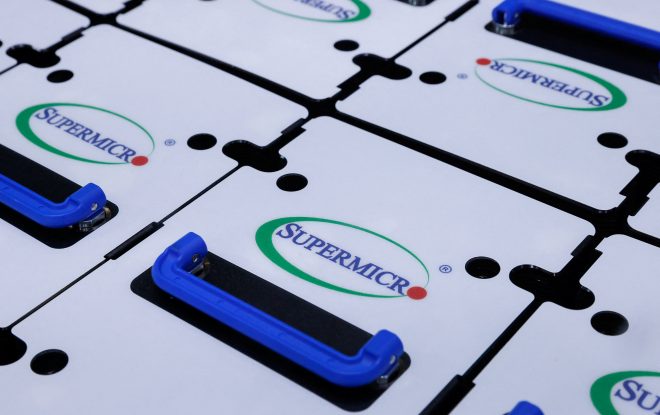Is Pfizer Stock Still a Buy After an Unexpected Setback?
With Pfizer (NYSE: PFE) stock badly underperforming the market over the past three years, falling by 32% while the market rose by close to the same amount, the last thing shareholders want to hear is news of another setback. Alas, the latest stumble was a somewhat unexpected one, and now the company will probably not realize revenue from one of its programs.
But is the stock still worth buying in hopes of a recovery over the long term? To answer that question in more detail, let’s put this setback into context.
The bull thesis is weaker now
The story of Pfizer’s stock over the last few years is inseparable from the trajectory of its coronavirus vaccine, Comirnaty. In 2022, the vaccine contributed to a total of more than $100 billion in revenue, Pfizer’s highest ever. Few thought that such heights were sustainable for the long term, but many, including yours truly, assumed that there would be considerable demand for annual booster doses.
That hasn’t happened. The company only expects to make up to $62.5 billion in revenue for 2024. Sales of Comirnaty in the second quarter were just $195 million, down 87% from a year prior, and there’s no expectation that they will resurge.
But even after the booster-shot argument for the stock’s growth fell apart, the broader bull thesis rooted in the success of Pfizer’s infectious-disease segment was far from dead. A combination shot against both seasonal influenza and the prevailing coronavirus variant could potentially bolster profits. With the convenience of one appointment to gain (temporary) protection against more than one illness, the draw to get vaccinated would be much stronger, which would support more sales.
Alas, that door now appears to be closing as well, for entirely different reasons. On Aug. 16, Pfizer and its collaborator BioNTech announced that a phase 3 clinical trial of their joint candidate to prevent COVID as well as two strains of influenza (flu A and flu B) had failed to prove that it generated sufficient immunity against influenza B. In this instance, the bar for “sufficient immunity” is set by other vaccines that are considered to be the standard of care against the same strains of the same viruses.
How big of a setback will these trial results be in terms of lost revenue, assuming the business doesn’t find a way to salvage the program?
Per a report by Fortune Business Insights, the market for influenza vaccines could be worth as much as $17.7 billion by 2032, up from more than $7.9 billion in 2023. While the ongoing market for coronavirus jabs is more difficult to size appropriately due to its sharp contractions over the last year and a half, Statista estimates that by 2029 it’ll be worth roughly $9.7 billion annually.
Pfizer would be splitting both markets with its competitors if it commercialized a combination shot. But as one of the vaccine market’s leaders, it would probably bring in at least $1 billion in sales per quarter with its candidate. That means it might have just lost a chance at launching another blockbuster drug. There aren’t any other comparable programs in Pfizer’s pipeline right now.
What’s more, the chances of it tweaking the candidate, then starting another series of clinical trials that ultimately lead to the vaccine’s approval and commercialization, are not high. Competitors like Moderna, GSK, and Sanofi recently hit the same roadblock as Pfizer and BioNTech’s candidate did with their respective flu-vaccine programs.
There’s still likely a lot of growth on the way
The investment thesis for Pfizer is slightly weakened by its combination-vaccine struggles. But the projected growth of the company, and especially its oncology segment, is still sufficient to justify buying the stock.
With its ever-expanding collection of anti-cancer drugs, it expects to be treating twice as many patients in 2030 as the 2.3 million it treated in 2023. It also expects to have more than eight blockbuster oncology medicines in its portfolio by then, up from just five today. There should be plenty of products that bring in recurring revenue.
Aside from growth, the stock’s valuation is currently on the cheap side, trading at a forward price-to-earnings (P/E) multiple of just under 11, based on analysts’ estimates. That’s far lower than the forward P/E of the S&P 500, which is 21.6.
The Pfizer of today isn’t a screaming buy, but it’s still worth purchasing. As its new growth drivers come online, its current bargain price will disappear. Don’t read too much into the setbacks with its combination-vaccine candidate; it has many other more lucrative programs in the works.
Should you invest $1,000 in Pfizer right now?
Before you buy stock in Pfizer, consider this:
The Motley Fool Stock Advisor analyst team just identified what they believe are the 10 best stocks for investors to buy now… and Pfizer wasn’t one of them. The 10 stocks that made the cut could produce monster returns in the coming years.
Consider when Nvidia made this list on April 15, 2005… if you invested $1,000 at the time of our recommendation, you’d have $792,725!*
Stock Advisor provides investors with an easy-to-follow blueprint for success, including guidance on building a portfolio, regular updates from analysts, and two new stock picks each month. The Stock Advisor service has more than quadrupled the return of S&P 500 since 2002*.
*Stock Advisor returns as of August 26, 2024
Alex Carchidi has no position in any of the stocks mentioned. The Motley Fool has positions in and recommends Pfizer. The Motley Fool recommends BioNTech Se, GSK, and Moderna. The Motley Fool has a disclosure policy.
Is Pfizer Stock Still a Buy After an Unexpected Setback? was originally published by The Motley Fool




Leave a Reply